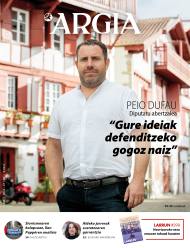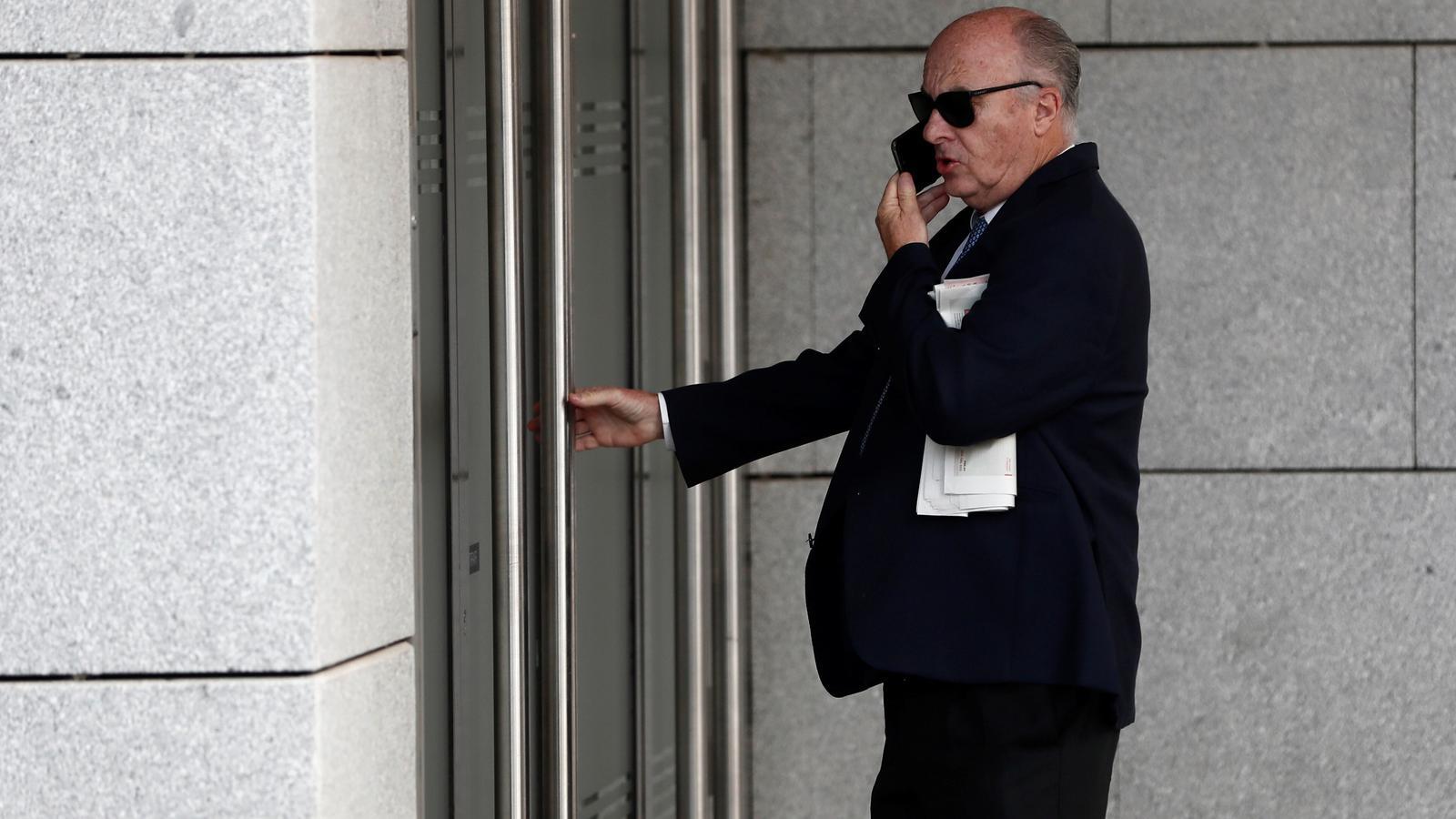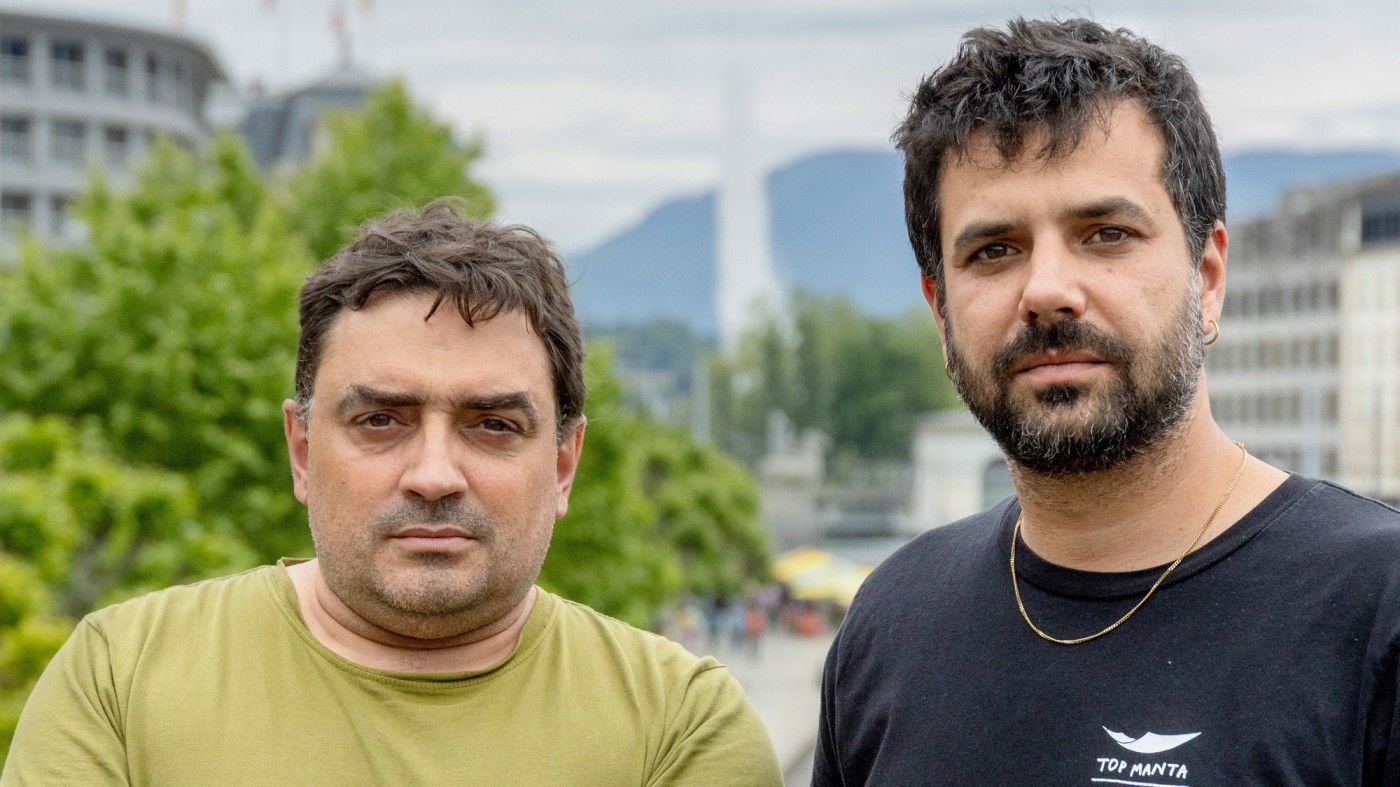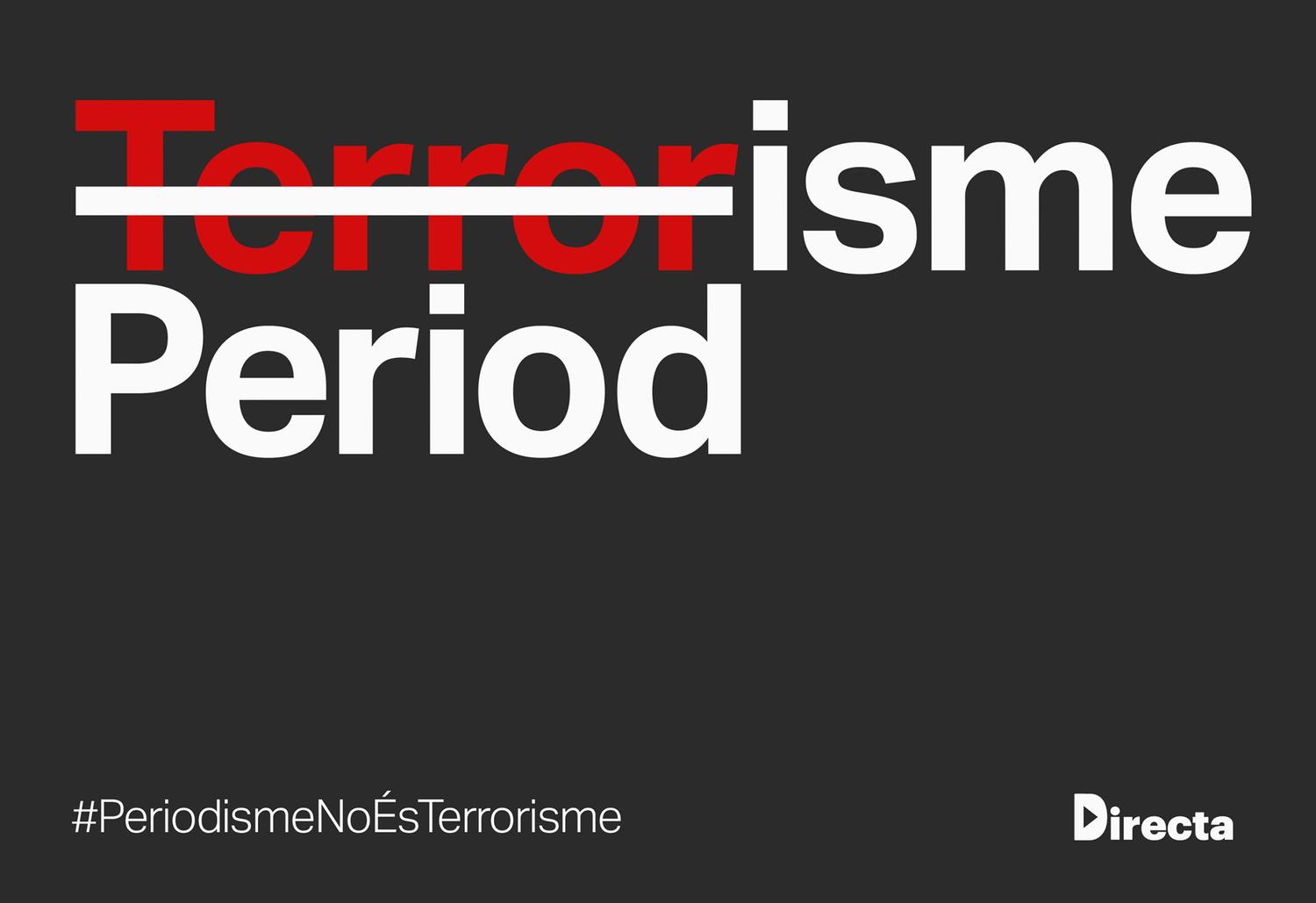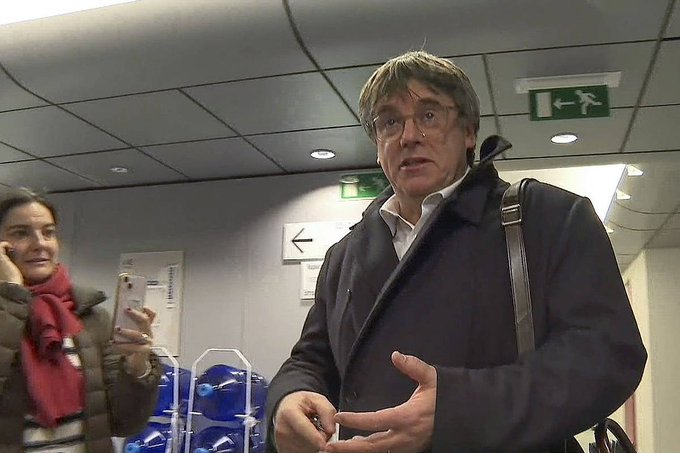- Why, then, did the whole thing fall apart three years after making the mistake?
- After eight months of exile, Rodríguez returned home and to the writing of Radio (Gramanet del Besós, Barcelona, 1974). Without anyone waiting for him, on 8 July, at 1 p.m., the case was completely turned against him and eleven others charged. It was archived. They had planned to stay in Switzerland for at least another year.

How are you?
The return has been beautiful and dense. Two very special moments: A politico-media act of those of us exiled in Switzerland, and more personal later, among friends, in my neighborhood.
What's happened so quickly, almost overnight, to come back?
From a technical-legal point of view, what has happened is that the Appellate Chamber of the National Court has suspended the last three years of the investigation, as the judge extended the instruction late – 24 hours – in July 2021. This fact has motivated the filing of the case against us. It is precisely in the last three years that the Civil Guard has set in motion alleged evidence accusing us of terrorism.
Is the matter completely closed or can you find a way to reopen it? I mean, do you expect anything? The
Vox, Societat Civil Catalana and Dignity and Justice associations, the three of the extreme right, have filed two appeals for the decision to file the case. We are waiting for that answer. García-Castellón, officially, filed the case, as the legal procedure pushed him to it, that is, because he did not have sufficient evidence and, therefore, opened a deadline for the accusations to be pronounced. They have done no more than they could have foreseen. But our lawyers say with complete confidence that there is no possibility.
We were with you in May and with ERC Member Rubén Wagensberg in Geneva (Switzerland). You said you had three departures. Two of them passed through the hands of the European Court of Justice. The other is the direct application of the Amnesty Act. You knew they wouldn't accept it... and in the end it's not necessary. A few hours before we announced the 180-degree return to our trial, that morning,
8 July, we had an important meeting with the lawyers, as the National Court decided days before to go to the European Court of Justice to ask ourselves whether we were going to be subject to the Amnesty Law. It was no surprise to us, as all the parties had previously been consulted.
However, once the question was sent to Luxembourg, the precautionary measures could be withdrawn and the case blocked, i.e. the possibility of diligence and the means to call us to declare. But they didn't. At that time, our most likely scenario was a year or a year or a half in exile, until the European Court of Justice ruled.
"If Europe were to tell Spain that the crime of terrorism is absurd and that the Penal Code should be reformed, it would be a harsh blow"
Marta Molina, of ERC, charged with you, brought the appeal that later gave rise to the case file. Didn't you expect anything along that path?
No, under no circumstances. It was precisely this element of the late enlargement that had already been on the table and the judges denied us the appeal. There have also been more errors in the investigation and all these complaints have been denied. Many times they haven't heard us. This question remains for all time: Why has the whole question now fallen, three years after making that mistake?
In early July comes Judge García-Castellón on vacation... To what extent has this influenced?
To all this, one element has been added: on that return of the day on which it was decided to file the case, the Spanish judiciary had to give its arguments to the European Court of Justice.
I think there are judges who have a corporate point of view and others who have a judicial point of view. They would be afraid that, with regard to the explanation he had given them in Luxembourg, he would be slain again, because, basically, it makes no sense or support for us to be blamed for a crime of terrorism.
Given the background of Spanish Justice with Europe, I believe that this fear factor exists and that the decision to close our cause has been a mechanism of “self-protection”. The National Court has on many occasions condemned the crime of terrorism for carrying out demonstrations and protests, as well as even in cases of "struggle", such as that of Alsasua.
The PP, seeing the latest conflicts with Vox, was interested in filing the case?
Maybe yes, but I don't think so. In addition, it's disappearing mediatically in this case. But look, imagine that the European Justice did not file the case and told Spain that these terrorist crimes were absurd and that it also required a reform of the Penal Code to prevent further judicial injustices of this kind. It would be a hard blow to the pp, because that legislation has been made in its own interest.
On 12 July you returned to the Catalan countries, after eight months of exile, some more. You took an iconic photo at the border: Two members of ERC, one from Òmnium, one activist businessman and one journalist. Significant image for crispation times. This picture was forced and obligatory, as a
sign that we have all created a beautiful network. We have shared exile, building excellent personal relationships, and together we have faced excessive judicial practice. We wanted to send a strong message. But, of course, we are people from very different backgrounds, and so the responsibility that each one feels and the future perspective is quite different. I don't think you can do a reading beyond that picture.
You are not free from all tsunami cases: Carles Puigdemont missing.
There are still more outstanding issues, such as that of the i. The Supreme Court has interpreted, to its liking, the misuse of public money. He said that Puigdemont has used public money to "enrich", for his benefit, to "satisfy his desires". In other words, with the open spectrum, he says that he has carried out his personal desires with political actions. Therefore, all politicians seem to be unable to work on what they believe.
This unfair judicial logic means that Carles Puigdemont, Lluís Puig and Toni Comín cannot return home. But we'll see what happens. They're willing to come back, and they're about to come back in a few weeks or months. They will risk being arrested.
At the same time, the Spanish Government of the PSOE is becoming increasingly clear that these issues will be resolved by the Constitutional Court (which is where the PSOE judges are), and that the three exiles are playing with that, among other things, to form the new Govern that the PSOE needs the support of the independentists. It remains to be seen whether the PSOE orders the Constitutional Court to meet urgently and to repeal those arrest warrants.
Walk from a train station, two friends and a hug. This hug will be frozen until the next meeting. I'll come home, he'll stay there. There, too, will be free the painful feeling that injustice wants us to catch. Jesús Rodríguez (Santa Coloma de Gramenet, 1974) is a journalist,... [+]







